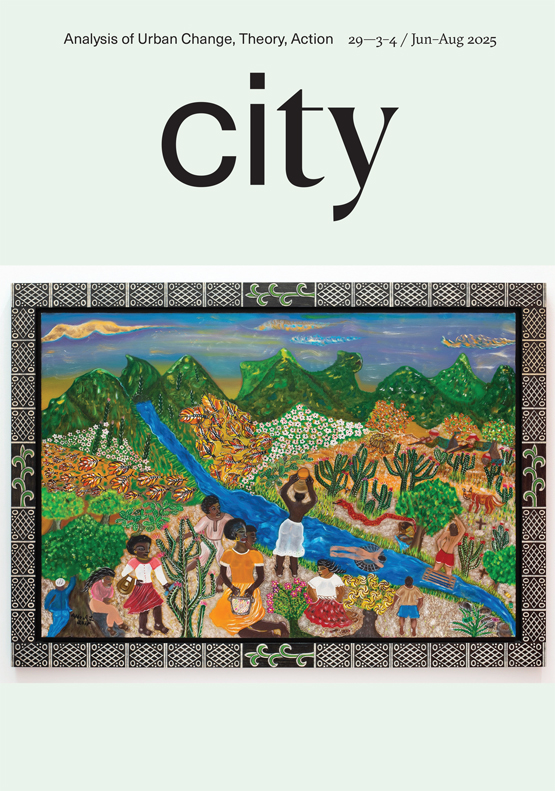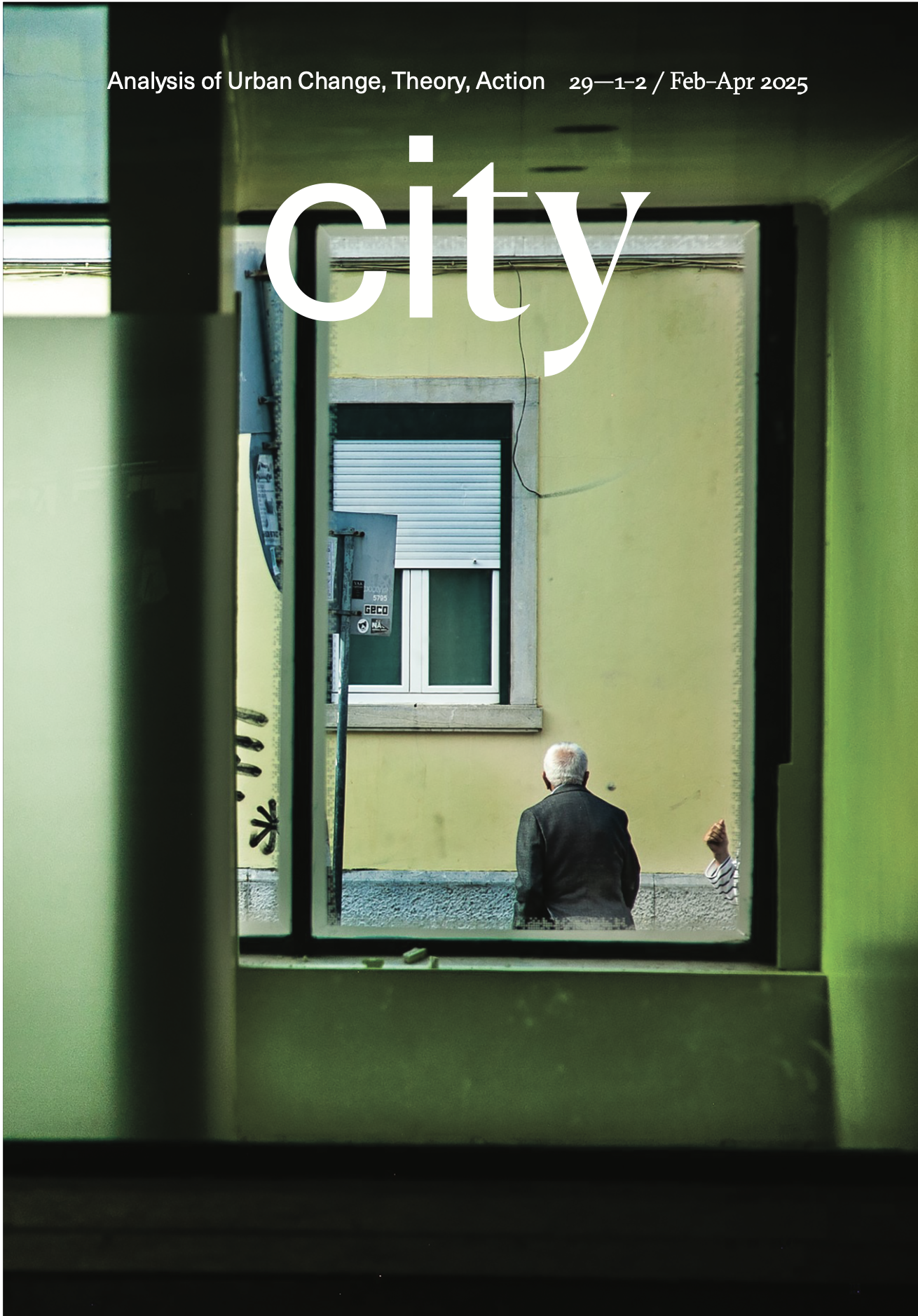foundating editor: bob caterall
city: issue 29.3-4
editor: city editors
editorial: Spanglish city limits
ulises moreno-tabarez
‘Until I am free to write bilingually and to switch codes without having always to translate, while I still have to speak English or Spanish when I would rather speak Spanglish, and as long as I have to accommodate the English speakers rather than having them accommodate me, my tongue will be illegitimate.’ -Gloria Anzaldúa (Citation1987), Borderlands/La Frontera, p. 125
Hay palabras que no cruzan. Se quedan al borde, mojadas por la espuma de otra lengua que no las reconoce. Words like convivência, morada, शहर (shaharpan), حيّ (hayy), they wash ashore in our field of urban studies, stripped of accent, neutralised into keywords that fit the syllabus.
But these palabras have blisters, tienen historias. They’ve walked long distances through barrios, aldeias, bidonvilles, campamentos, vecindades, carps. And still, when they arrive, the peer review asks for clarity, the editor asks for equivalence, and the Anglophone journal asks for a bridge.
Pero this is not a bridge.
Esto es un manglar.
A muddy passage.
Un espacio fronterizo,
a borderland.
Here, we think desde el border: translation is never a safe puente, it is a manglar where words sink, sprout, and sometimes bite. In that swampy threshold we locate what Margit Fauser (Citation2017) names the urban border: not a line on a geopolitical map, but a moving apparatus that shadows migrants into the city, policing breath, labour, lengua. Es una frontera portátil, una extensión of the national, que limita quién puede reclamar agua potable, atención médica, even a bedtime story in the mother tongue. Its checkpoints are myriad: zoning bylaws, rental contracts, welfare offices, editorial guidelines that sand accents off conceptos viajeros, travelling concepts often stripped of their context and histories as they migrate into dominant academic markets. When a term like convivência is flattened into ‘community engagement,’ the urban b/order has done its silent work.
Con ese horizonte lodoso por delante, we looked outward, toward the conversations still untranslated, still waiting at the edge. Earlier this year, in anticipation of the 2025 RGS-IBG Annual Conference in Birmingham, we circulated a call for contributions under the title Urban Omissions: Untranslated Concepts and Debates in Urban Studies. We asked: how can those of us writing from English-dominant forums, like City, better recognise and amplify the urban thinking that lives in other tongues? What vocabularies of theory and practice exist beyond the reach of Anglophone canons? What does it mean to practice ‘citation as translation,’ not simply as acknowledgement, but as an invitation to rethink what we call rigour, qué entendemos por urbanismo, qué damos por hecho en nuestras bibliografías.
This editorial emerges from that same impulse, but veers off into another current. It doesn’t aim to summarise the panel, nor map the contours of what will be discussed. Instead, it offers a provocation, a fragment, a resonancia, an invitation to consider language, translation, and epistemic border-making as foundational to how urban theory is built, cited, and circulated. In doing so, it extends the call’s spirit while departing from its form, moving through swampier terrain: personal, affective, political. This detour is in step with City’s commitment to trouble the urban canon.
And further still: what forms of knowledge remain off the map, not for lack of clarity or ‘it’s underdeveloped’, but because they are spoken in tongues the global North has not cared to learn, or worse, has mistranslated or erased?
This editorial doesn’t stand apart from the questions that prompted the call, it moves with them differently. Not a blueprint, but a gesture. Not a bridge, but a thread in the manglar. One of many routes we might trace when we gather in Birmingham, and, perhaps, after.
click here to read the full editorial.




